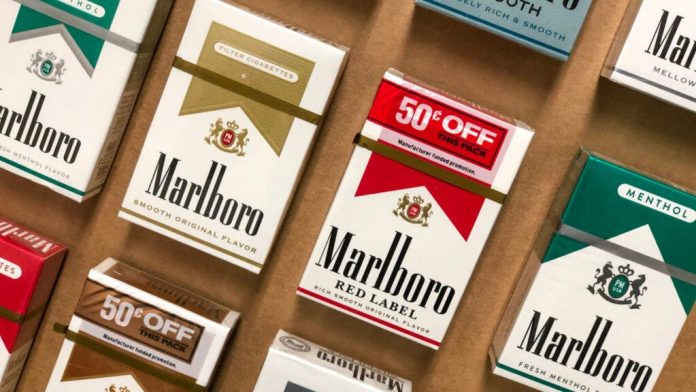Marlboro parent Philip Morris International Inc. (NYSE:PM) saw its stock dip on Tuesday following the release of its second-quarter fiscal year 2025 earnings report.
While the tobacco giant’s revenue increased by 7.1% year-over-year (+6.8% organic) to $10.14 billion, it slightly missed the analyst consensus estimate of $10.32 billion.
However, Philip Morris delivered adjusted earnings of $1.91 per share, surpassing both the consensus of $1.86 and the management guidance of $1.80-$1.85.
A key highlight of the report was the continued robust performance of its smoke-free business, which now accounts for a significant portion of the company’s financials.
Smoke-free products contributed 41% of total net revenues (up by 2.9 percentage points versus last year) and over 42% of total gross profit (up by 3.8 percentage points).
Shipment volumes of these products increased by 11.8%, with net revenues growing by 15.2% (14.5% organically), and gross profit increasing by 23.3% (21.5% organically).
This underscores the company’s strategic shift towards a smoke-free future, as articulated by CEO Jacek Olczak, who noted these results “reflect excellent momentum in our multicategory smoke-free business.”
Within the smoke-free portfolio, inhalable smoke-free products, primarily centered on IQOS, exceeded $3 billion in quarterly net revenues.
The company reported a reacceleration of HTU (Heated Tobacco Unit) adjusted in-market sales (IMS) volume, which excludes distributor and wholesaler inventory movements, back to double-digit growth of 11.4%.
This was driven by commercial initiatives and a notable improvement in Europe as the impact of the characterizing flavor ban subsides in affected markets.
The e-vapor category, particularly the VEEV brand, continued its increasingly profitable growth, with shipment volumes more than doubling, primarily fueled by strong performance in Europe.
In a significant statement on the potential of its next-generation products, Reuters cited Philip Morris International CFO Emmanuel Babeau as saying, “We think vape brand VEEV can have a similar level of profitability as cigarettes.”
This indicates the company’s strong belief in the financial viability and long-term potential of its e-vapor offerings to contribute substantially to overall profitability, mirroring the margins traditionally associated with its legacy combustible products.
In the oral smoke-free products segment, shipment volumes increased by 23.8% in pouches or pouch equivalents (26.5% in cans), primarily driven by nicotine pouches. These more than doubled outside the U.S. and Nordics and grew by over 40% to 190 million cans in the U.S., further diversifying the company’s smoke-free revenue streams.

